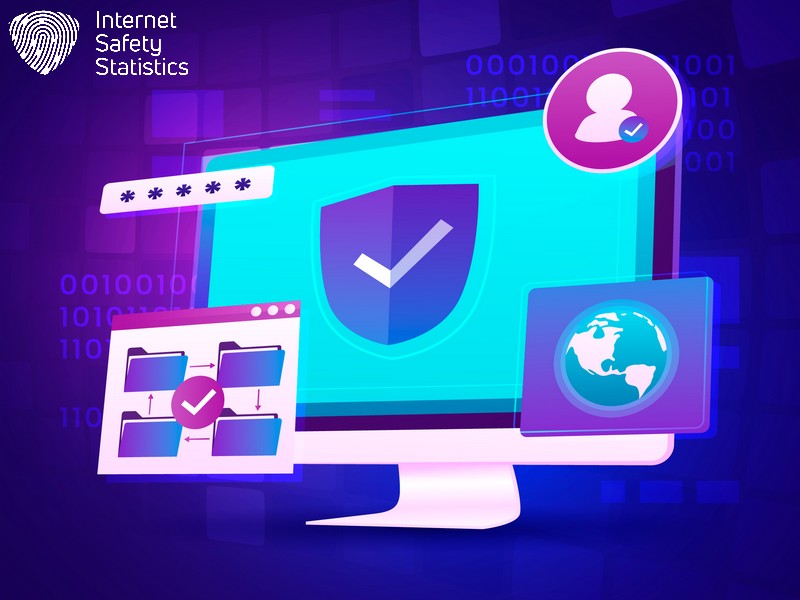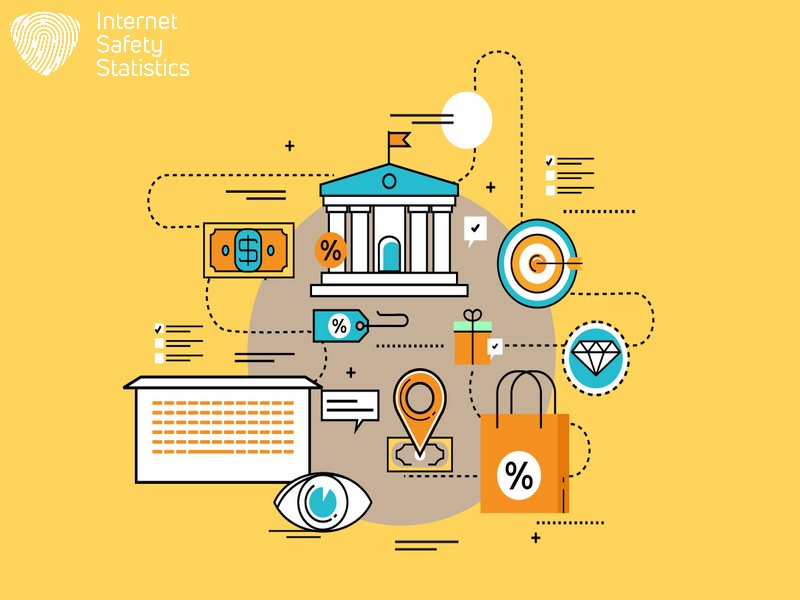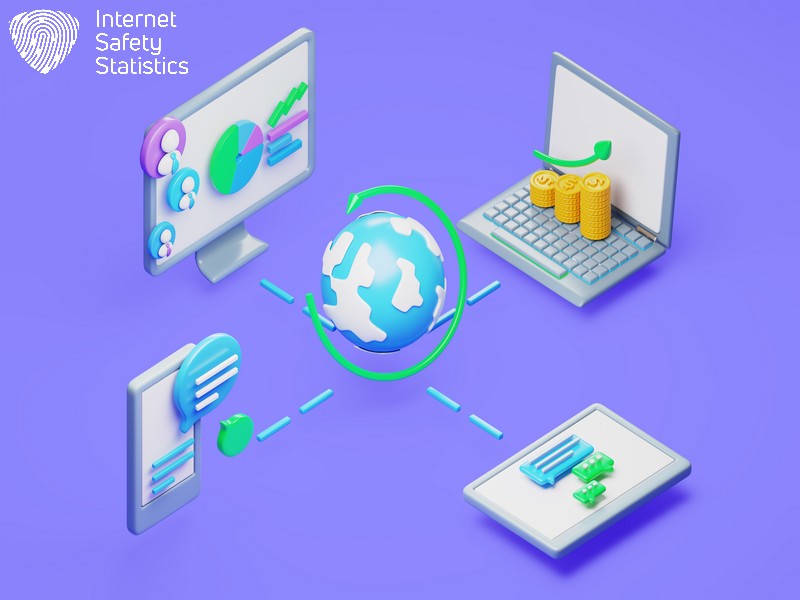
The digital economy thrives on data. From targeted advertising to personalised recommendations, information fuels innovation and convenience. However, concerns regarding the collection and use of personal data are high. This critical analysis delves into the complex relationship between privacy and the digital economy.
We will explore the role of privacy in safeguarding our personal information and fostering trust and security within the online marketplace. By examining the impact of privacy on areas like online transactions and social interactions, this analysis will shed light on the need for a balanced approach that prioritises economic growth and individual control over personal data.
Stay tuned to learn how to protect your information!
Digital Privacy Research
Different perspectives on privacy are crucial for understanding its role in the digital economy, and defining digital privacy is a complex task. Extending research in this area can help us better manage personal data on digital platforms.
Different Perspectives on Privacy
Privacy is a multifaceted concept that means different things to different people. For some, it’s about keeping personal data away from prying eyes, while businesses might view it as sensitive information that needs protection for competitive reasons.
Consumers demand secure online environments where their information is safe from unauthorised access or theft. This has made digital security and online privacy hot topics in every household and boardroom.
Tech companies often collect user data to tailor services and marketing strategies, balancing convenience and intrusion. Parents worry about the safety of their children’s online identities; office workers seek assurance that their work-related communications remain confidential.
The challenge lies in crafting regulations that adequately protect all parties without stifling innovation or convenience in our rapidly evolving digital world – leading us into detailed discussions about the role of privacy in the digital economy.
The Role of Privacy in the Digital Economy
Protecting data in the digital economy is crucial for individuals, companies, and governments. Proper privacy management reduces financial and legal risks and builds trust between businesses and consumers.
The rise of attention to privacy stems from the increased usefulness of data, as digitisation has reduced the cost of data collection, storage, transmission, and analysis. A strong data protection framework can foster consumer trust and increase the use of digital tools, thereby incentivising investment and competition in the digital economy.
Digital technologies have revolutionised connectivity while raising privacy concerns. As such, navigating challenges related to safe data handling in today’s digital landscape is essential.
Defining Digital Privacy
As we delve into the complexities of digital privacy, it’s essential to understand what this concept entails. Digital privacy refers to the protection of personal data and information in the online sphere.
Digital privacy involves controlling access to personal details stored on various digital platforms and ensuring that these details are not misused or accessed without consent. Digital privacy encompasses safeguarding sensitive information from unauthorised access and usage by individuals, organisations, or governing bodies.
In today’s interconnected world, where vast amounts of data are collected through digital technologies and internet transactions, maintaining digital privacy has become an ever-pressing concern for individuals and organisations alike.
Managing Privacy on Digital Platforms

Managing privacy on digital platforms is crucial for maintaining trust and protecting personal data. The boundary resource perspective offers insight into balancing the use and protection of personal data, and extending research in this area is essential for addressing evolving challenges.
The Boundary Resource Perspective
Digital privacy on digital platforms is viewed through the boundary resource perspective, emphasising the management and balance of personal data use and protection. This approach acknowledges that individuals are constantly engaging with various digital tools and services that require access to their personal information.
By understanding data’s value as a boundary resource, service providers can better appreciate the need to protect users’ sensitive information while still meeting their digital needs. With this in mind, navigating challenges in safe data handling within the digital economy becomes essential. The boundary resource perspective highlights the importance of safeguarding personal data against potential breaches or misuse to maintain trust between businesses and consumers.
As end-users increasingly rely on digital tools for various transactions and interactions, ensuring effective management of privacy concerns becomes paramount for fostering healthy competition and investment in the digital economy.
Balancing Personal Data Use and Protection
Moving on from the boundary resource perspective, addressing the challenge of balancing personal data use and protection in the digital economy is essential. As technology advances, individuals share an increasing amount of personal information online. Finding the equilibrium between utilising this data for personalised services and safeguarding privacy. It ensures that users can control their data while benefiting from tailored digital experiences.
Ensuring a balance between personal data use and protection fosters trust and encourages continued innovation and economic growth in the digital landscape. This delicate balance requires thoughtful consideration of privacy regulations, cybersecurity measures, and ethical guidelines to protect individuals’ sensitive information while supporting a thriving digital economy.
Extending Digital Privacy Research
Digital privacy research is essential in addressing data protection and surveillance challenges in the digital economy. With the rise of new technologies, including artificial intelligence and big data analytics, it is crucial to continually expand research efforts to understand and tackle evolving privacy threats.
This involves exploring cutting-edge methods for safeguarding personal data, developing robust encryption techniques, and devising innovative ways to balance data use with privacy protection. Furthermore, extending digital privacy research can help identify emerging issues and guide policymakers in creating effective regulations that uphold individuals’ rights while enabling responsible data-driven innovation.
Efforts to extend digital privacy research are vital for ensuring that information remains secure amidst rapid technological advancements. As such, ongoing investigations into preserving online security will foster trust between users, organisations, and governments in an increasingly connected world.
Challenges in the Digital Economy
The challenges in the digital economy include data breaches and cyber-attacks, privacy concerns in data markets, and the privacy paradox. Read on to explore how these challenges impact personal privacy in the digital economy.
Data Breaches and Cyberattacks
Data breaches and cyberattacks pose significant threats to personal and business data in the digital economy. Hackers exploit vulnerabilities in online systems, gaining unauthorised access to sensitive information such as financial records, personal identities, and proprietary business data.
These breaches can lead to severe financial losses for individuals and enterprises while undermining trust in digital platforms. Strong data protection measures are essential to safeguard against these malicious activities, emphasising the critical need for robust cybersecurity protocols.
Businesses must prioritise cybersecurity by implementing encryption technologies, multi-factor authentication, and regular security updates on their digital platforms. Individuals should also remain vigilant by using strong passwords, avoiding suspicious links or attachments, and staying informed about potential cyber threats.
Privacy Concerns in Data Markets
Privacy concerns in data markets are a significant challenge in the digital economy. The extensive collection and exchange of personal information raise issues regarding its protection and usage.
Data breaches and cyberattacks pose substantial risks to individuals, businesses, and governments, underscoring the critical need for strong data privacy laws. Furthermore, digital technologies enable firms to gather vast amounts of data, potentially leading to unauthorised access or misuse of personal information. As such, stringent regulations are necessary to safeguard individuals’ privacy rights and maintain trust within the digital marketplace.
Addressing privacy concerns in data markets is vital to establishing a secure environment for online interactions. It requires a delicate balance between facilitating innovation and protecting sensitive personal data from exploitation.
By implementing robust measures that safeguard individual privacy rights while promoting responsible use of data, we can foster greater confidence among consumers and stakeholders in the digital economy’s perpetuity.
The Privacy Paradox
Navigating the landscape of data markets, users are faced with what is known as the privacy paradox. This paradox highlights the apparent contradiction between people’s concerns about their privacy and their willingness to share personal information online.
Despite expressing concerns about privacy violations and data breaches, individuals continue to engage in activities that could compromise their digital privacy. Research has shown that this paradox stems from convenience, social pressure, lack of awareness, and trust in technology platforms.
Businesses and policymakers must prioritise transparent data collection and usage practices to address the privacy paradox effectively. By empowering users with clear information about how their data will be managed and protected, service providers can create an environment where individuals feel more comfortable sharing personal information online.
Ethics and Privacy

Addressing moral dilemmas is crucial in the digital economy, and ethical guidelines are key in protecting personal data. Understanding these issues can lead to potential solutions that prioritise privacy rights without hindering the digital economy.
The Importance of Ethical Guidelines
Ethical guidelines ensure that personal data is handled with integrity and respect. These guidelines help protect individuals’ privacy rights by establishing clear boundaries for collecting, using, and sharing personal information online.
By adhering to ethical standards, businesses and organisations can build trust with their customers and clients while promoting a safe digital environment. Implementing ethical guidelines also helps address moral dilemmas related to data privacy, ultimately contributing to a more secure and transparent digital economy.
Moreover, ethical guidelines provide practical solutions for navigating complex privacy issues in the digital age. They empower individuals to make informed choices about how their data is utilised while encouraging responsible practices among industry players.
Addressing Moral Dilemmas
Having established the importance of ethical guidelines in managing digital privacy, addressing moral dilemmas is crucial. Internet users, office workers, and parents must grapple with the ethical implications of data handling and privacy breaches.
Understanding the potential consequences of their online actions can empower individuals to make informed decisions about their digital footprint. Balancing personal convenience with ethical responsibility towards protecting personal information is essential in today’s interconnected world.
Navigating through privacy concerns presents a challenge that requires careful consideration. Recognising the impact of one’s online activities on data protection fosters a culture of responsible internet usage.
Potential Solutions
Addressing moral dilemmas is crucial in navigating privacy challenges in the digital economy. There are several potential solutions to mitigate these concerns:
- Implementing robust data protection laws and regulations to safeguard personal information from unauthorised access and misuse.
- Promoting transparency and accountability in data collection and usage practices to build trust between businesses and consumers.
- Encouraging the development of privacy-enhancing technologies that empower users to control their data.
- Educating individuals about digital privacy rights and best practices for managing their online information.
- Fostering collaboration between industry stakeholders, policymakers, and technology experts to address emerging privacy challenges effectively.
The Future of Privacy in the Digital Economy

Navigating the privacy challenges in the digital economy will require a proactive approach to safeguarding personal data and addressing ethical concerns. The implications for the digital economy are vast, and it’s crucial to stay ahead of potential risks and advancements in technology.
Navigating Challenges
To ensure personal data protection, individuals must navigate through the privacy paradox. Despite concerns about online privacy, people often share large amounts of personal information on digital platforms.
The challenge lies in balancing enjoying the benefits of online services and safeguarding one’s privacy. Adhering to ethical data collection and use guidelines can help address this dilemma; consumers and businesses should prioritise trust and privacy when navigating the digital landscape.
Safeguarding Personal Data
- Utilising encryption and secure communication protocols to protect sensitive information from unauthorised access.
- Implementing strong authentication processes such as two-factor authentication to prevent unauthorised access to personal data.
- Regularly updating security software and maintaining strong firewalls to prevent cyber attacks and data breaches.
- Providing comprehensive training for employees on data protection best practices to mitigate internal threats.
- Conducting regular audits and assessments of data security measures to identify and address potential vulnerabilities.
- Developing clear policies for data handling, storage, and disposal to ensure compliance with privacy regulations and standards.
- Engaging in transparent communication with users about how their data is collected, used, and protected.
- Collaborating with industry regulators and partners to stay updated on evolving privacy laws and best practices for data protection.
Implications for the Digital Economy
Safeguarding personal data and ensuring robust digital privacy measures have significant implications for the digital economy, impacting various stakeholders such as businesses, consumers, and policymakers.
By establishing a solid foundation of trust through enhanced privacy practices, businesses can foster consumer confidence and drive increased use of digital tools. This heightened trust can incentivise investment and competition in the digital marketplace, ultimately contributing to a more vibrant and dynamic economic landscape.
Additionally, prioritising data protection will mitigate financial and legal risks for both businesses and consumers, thus strengthening the overall integrity of the digital economy.
The importance of information privacy extends beyond individual users to influence the broader economic environment. As digitisation has made data collection more cost-effective, upholding strong privacy standards is crucial to navigating the challenges associated with safe data handling in the digital age.
Prioritising digital privacy is essential for all stakeholders in the digital economy. Protecting personal information fosters trust and mitigates risks. The future of the digital economy depends on robust data protection measures. Navigating challenges and addressing privacy concerns will pave the way for a secure and sustainable digital landscape.
FAQs
What does online data protection mean in the digital economy?
Online data protection involves securing personal information from misuse or unauthorised access within the digital economy.
Why is internet privacy important for individuals?
Internet privacy is crucial because it ensures that people’s details are kept safe and not exploited when they use digital services.
How can businesses offer better personal information protection?
Businesses can enhance how they protect customer data by following strict policies and using technology designed to maintain high information protection.
What role does privacy play in shaping the digital economy?
Privacy is a foundation of trust, encouraging more users to engage safely with digital platforms, which is essential for a flourishing digital economy.
